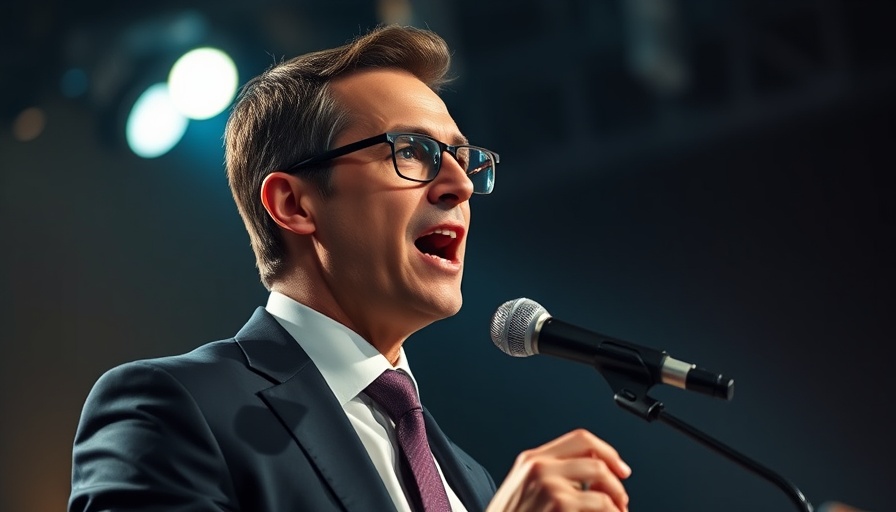
Urgent Incident: A Harrowing Attack on Colombian Politics
In a shocking act of violence, Colombian senator and presidential candidate Miguel Uribe Turbay was shot at a campaign event on Saturday afternoon, leading to his critical condition. The attack, which occurred in Bogotá, has sent ripples through the political landscape as the country prepares for the 2026 presidential elections.
Implications of Political Violence in Latin America
Political violence remains a regrettable hallmark of Colombian history, often linked to the longstanding strife with guerrilla groups and narcotic cartels. This incident underscores urgency for a deeper examination of political safety in the country. Following years of violence associated with the armed conflict and political transitions, the targeting of political figures like Uribe raises questions about the stability of democratic institutions in Colombia now more than ever.
A Widening Divide: The Political Context Around Uribe
Uribe, a member of the conservative Centro Democratico party, was attending an event when he was shot in the head, leading many to speculate on the motives behind the attack. Analysts note that his right-wing stance often provokes polarizing opinions among the electorate. For citizens and party members, this incident is not merely an attack; it symbolizes the escalating tensions within a deeply divided political landscape.
Public Reactions and Concerns for Safety
Public and political figures alike have expressed shock and dismay at this act of violence. Foreign Minister Laura Sarabia voiced her hope for Uribe's recovery, emphasizing that “violence can never be the way.” The public response has sparked discussions on the safety of political candidates and the broader implications for free expression in Colombia. Will this attack deter engagement in an already tense political environment?
The Role of Media in Addressing Political Violence
As breaking news unfolds, the media finds itself in a pivotal role, shaping public perception and discourse around the event. Coverage needs to move beyond sensationalism to investigate the root causes and offer insights into how societal factors may contribute to such violence against leaders. By framing these stories, the media can illuminate patterns of hostility, encouraging national dialogue about political safeguarding.
Next Steps: The Road to Recovery for Colombian Politics
This incident not only necessitates urgent attention to Uribe's health but also a collective look into the broader political environment. The Colombian government must address the systemic issues contributing to political violence. More importantly, it must reassure both politicians and citizens of their safety in participating in the democratic process. As the investigation unfolds, the international community will also be watching closely, showing solidarity with the affected communities across Colombia.
Conclusion: A Call for Unity Against Violence
As we process this shocking news, it is vital for Colombians to unite against violence. Political safety is a concern that transcends party lines; a safer environment fosters not only democracy but encourages active participation amongst citizens. To stay updated on the latest developments concerning this crucial incident and its implications for Colombian politics, engage with your national news outlets regularly.
 Add Element
Add Element  Add Row
Add Row 



 Add Row
Add Row  Add
Add 


Write A Comment